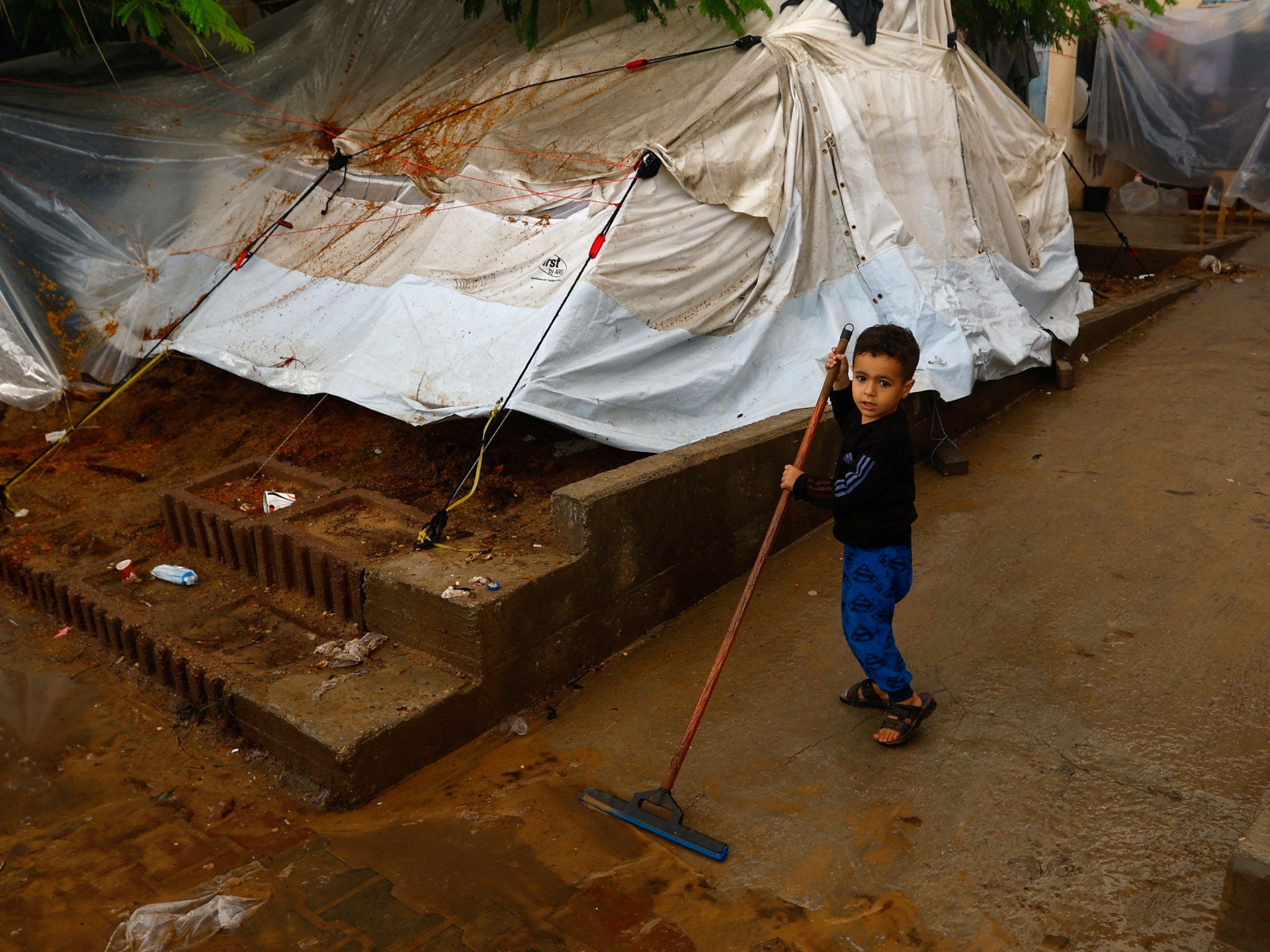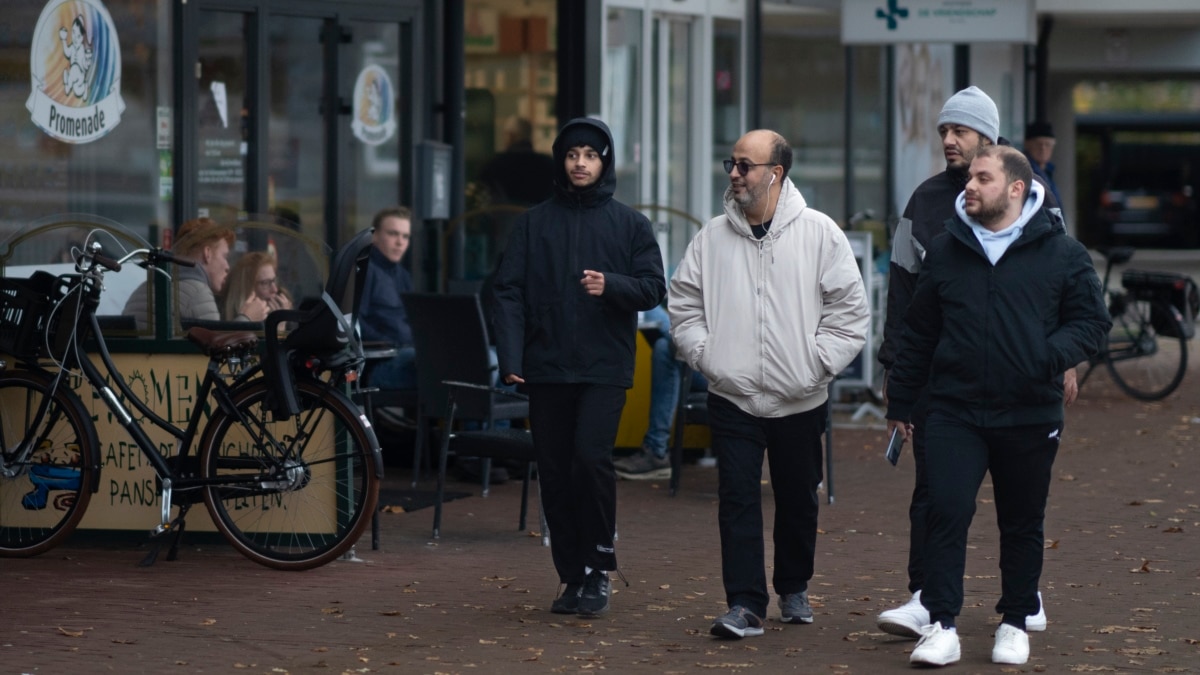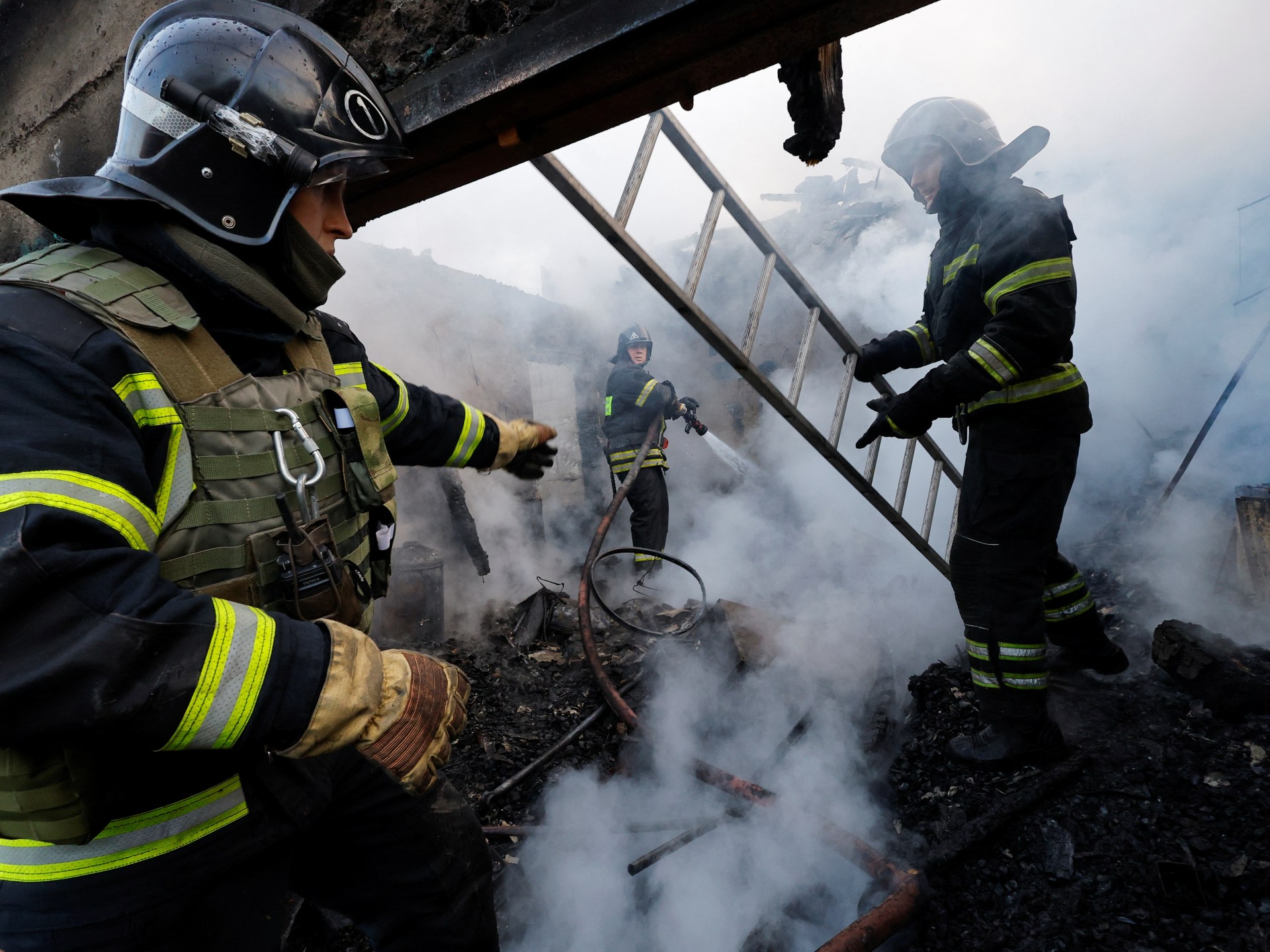
Khan Younis, Gaza – The streets of Gaza are mainly filled with sewage Plumbing services have ceased operations, raising the alarming prospect of a huge increase in gastrointestinal and infectious diseases in the local population – including cholera.
For Gaza’s 2.3 million residents, finding drinking water is nearly impossible.
At a United Nations Relief and Works Agency for Palestine Refugees (UNRWA) school in Khan Younis, 33-year-old Osama Saqr tried to fill some bottles of water for his thirsty children.
He took a sip and grimaced at the saltiness of the liquid before letting out a long sigh.
“It is dirty and unsuitable, but my children always drink it, there is no alternative,” he told Al Jazeera.
Saqr’s one-year-old son has diarrhea, but he can’t find medicine to treat it in hospitals or pharmacies. “Even if I find it, the problem remains, the water is polluted and saline, not suitable for drinking,” he said.
“I am afraid that I will eventually lose one of my children to this poisoning.”
The World Health Organization (WHO) has recorded more than 44,000 cases of diarrhea and 70,000 acute respiratory infections, but the actual numbers could be significantly higher. On Friday, the UN agency said it was extremely concerned that rains and flooding during the upcoming winter season could worsen the already dire situation.
“We are hearing of several hundred people per toilet in UNRWA centers and these are overcrowded, so people are defecating in the open,” Richard Brennan, WHO regional emergencies director for the Eastern Mediterranean region, told Al Jazeera. “They need to find a place to go to the toilet on the property where they live. This poses a huge risk to public health and is also very humiliating.”
Brennan said overcrowding, lack of waste disposal, poor sanitation and open defecation contributed to the spread of diseases such as diarrhea, respiratory infections and skin infections, including scabies.
UN organizations have warned of the collapse of water and sanitation services could even trigger attacks of cholera if urgent humanitarian assistance is not provided. If nothing changes, “more and more people will become sick and the risk of larger outbreaks will increase dramatically,” Brennan said.
Out of fuel
Gaza’s vital water and sanitation infrastructure has either been destroyed by Israeli bombings or has run out of fuel. In the southern governorates of Deir el-Balah, Khan Younis and Rafah, all 76 water wells, as well as two main drinking water plants and 15 sewage pumping stations, are out of operation, according to UNRWA.
The WHO estimates that the average person in Gaza currently uses only 3 liters of water per day for drinking and sanitation purposes. This corresponds to the minimum of 7.5 liters recommended by the authority for emergencies.
The closure of key services, including water desalination plants, wastewater treatment and hospitals, led to a 40 percent increase in diarrheal illnesses among people seeking shelter in UNRWA schools, the agency said. It is estimated that around 70 percent of Gaza’s 2.3 million people – more than half of them children – no longer have access to clean water.
On Wednesday, Israeli authorities allowed just over 23,000 liters (6,000 gallons) of fuel to be transported to the Gaza Strip via Egypt. However, they limited the use of this fuel to trucks carrying the few incoming supplies. UNRWA said it needed 160,000 liters (42,000 gallons) of fuel daily for essential humanitarian operations.
“This fuel cannot be used for all humanitarian assistance, including medical facilities and water supplies or the work of UNRWA,” the organization’s commissioner general, Philippe Lazzarini, said at a news conference. “It is appalling that fuel continues to be used as a weapon of war. This seriously cripples our work and the delivery of assistance to the Palestinian communities in Gaza.”
The Ministry of Health in Gaza has warned that the lack of clean water caused by fuel shortages has particularly endangered the lives of 1,100 patients with kidney failure, including 38 children.
Among them is Samer Abdeen’s 22-year-old brother Muhammad, who is suffering from acute renal colic due to poor water quality. “When he is in a lot of pain, he screams,” Abdeen, 40, told Al Jazeera as he searched the streets of Khan Younis for bottled water to buy.
While bottled water is now expensive and very difficult to find, he refused to give up the search.
“I don’t want to lose him in this unjust war,” he said.
Die of thirst
60-year-old Samir Asaad from Deir el-Balah camp suffers from high blood pressure, which is exacerbated by drinking salty water. “I heat the water over a fire to drink it so I don’t feel its salinity,” he said.
“They make us die of thirst or force us to drink water so we die anyway,” he said, referring to the Israeli siege of Gaza.
Humanitarian workers demand more help to enter Gaza. The World Food Program warned on Thursday that supplies of food and water in the Gaza Strip were almost non-existent and that civilians were at imminent risk of dehydration and starvation.
Some residents dug wells to obtain water, even though it was contaminated by the sewage and solid waste that piled up untreated on the streets. Asaad said his family prefers to wait in line for hours to fill bottles at gas stations, but is under no illusions that the water there is safer to drink.
Umi al-Abadla, deputy director general for basic services at Gaza’s Ministry of Health, said the water that reached the gas station was treated before pumping, but this was no longer possible due to fuel shortages.
“As a result of the power outage, water is being distributed from randomly selected wells whose water is contaminated,” he said. “This has resulted in more diarrhea in children than the annual average.”
He added that the lack of personal hygiene resulting from mass displacement is leading to the spread of skin diseases as well as viral diseases, including chickenpox, and increasing the risk of epidemics of diseases, including cholera.
Drink dirty sea water
Desperate to quench their thirst, some in Gaza resort to drinking sea water.
But with sewage systems and sewage treatment plants out of action due to a lack of fuel, more than 130,000 cubic meters of wastewater is being discharged into the Mediterranean every day.
Salwa Islam, 45, said she and her family go to the sea to swim and sometimes drink from it. “I am forced to drink sea water and so do people here,” she told Al Jazeera.
“Where is our right to water? “What kind of war is this that keeps all citizens from eating, drinking and all other essentials?” She said.
“Is this a punishment for the children who ask every day when the war will end? They stand on the street and ask for bottles of water to drink. But there is no drinking water in Gaza.”






Recent Comments